
12.02.2024
13h00 Musiques&Recherches – Conservatoire Petite Salle/Kleine Zaal
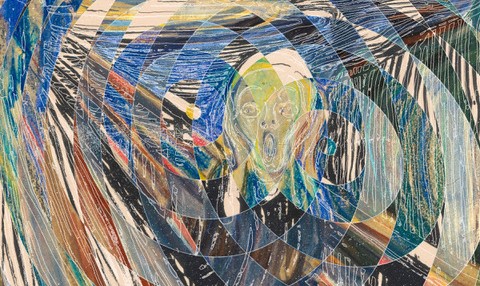
Entrée libre
De 1987 à 1993, j’ai été nommée professeur de musique “électronique” au conservatoire Royal de Bruxelles francophone, dans une classe expérimentale (avec un concours final mais pas de diplôme officiel, et nommée quand même!). Faute de locaux et équipements, les cours avaient lieu dans les studios de Musiques & Recherches. Ce furent des années riches d’échanges passionnés avec des étudiants curieux et ouverts (plus de 20 certaines années). Ce concert présente des œuvres des étudiants de cette classe et de moi-même autour de la voix. Il prépare la master classe qui offre un vaste panorama de l’utilisation de la voix en musique acousmatique avec de nombreux exemples sonores, le tout sur l’excellent acousmonium INFLUX en version « mini » de ± 32 haut-parleurs.
Annette Vande Gorne
13h concert
Stephan Dunkelman – Metharcana
Ingrid Drese – Tout autant
Annette Vande Gorne – Opéra acousmatique: Yawar fiesta: combattimento
Annette Vande Gorne – VOX ALIA: vox intima
Annette Vande Gorne – VOX ALIA : Cathédrales
14h Moment d’échanges autour d’un café et de petits-fours.
15h Conférence
‘Les voies de la voix acousmatique’ par Annette Vande Gorne
13.02.2024
18h30 Project from KCB/CRB Students – Conservatoire Grande Salle/Grote Zaal
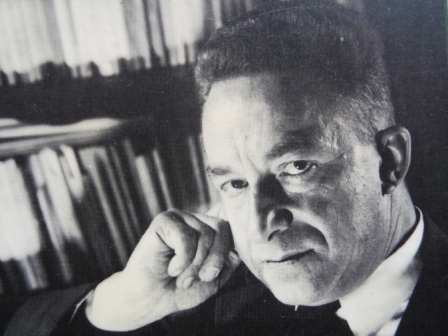
Cebedem ensemble project sous la coordination de Vincent Hepp.
Program:
Karel Goeyvaerts Honneurs funèbres à la tête d’Orphée(transcription Vincent Hepp)
André Souris Fantaisie pour violes retranscrite pour sextuor
Willem Pelemans Suite pour sextuor à cordes
20h00 Kl-Ex concert – BOZAR Hall M
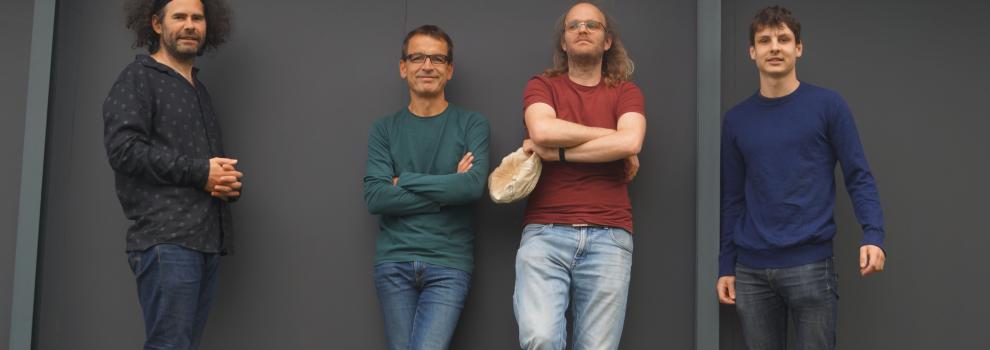
Reservations : bit.ly/BMD-KL-EX
L’Ensemble Kl-EX (Klangexperimente) a été créé en 2018 par Paul Pankert, Christian Klinkenberg et Wolfgang Delnui. Ces trois compositeurs originaires de la communauté germanophone de Belgique avaient déjà auparavant réalisé un grand nombre de projets innovants qui touchent aussi bien à la musique électronique, improvisée que les médias mixtes et le théâtre musical. Le point commun de tous les projets est le discours artistique avec notre société en gardant la plus grande liberté et indépendance. En cela les compositeurs interrogent aussi les traditions de la musique, les questionnent et cherchent des nouvelles formes de communication et d’évolution. Lors des Belgian Music Days, KL-EX présentera des nouvelles créations.
—-
Ensemble Kl-EX (Klangexperimente) was founded in 2018 by Paul Pankert, Christian Klinkenberg and Wolfgang Delnui. These three composers from Belgium’s German-speaking community had already completed a large number of innovative projects touching on electronic and improvised music, mixed media and musical theater. What all the projects have in common is their artistic discourse with our society, while retaining the utmost freedom and independence. In doing so, the composers also question and challenge musical traditions, and seek new forms of communication and evolution. At Belgian Music Days, KL-EX will be presenting new creations.
—-
Ensemble Kl-EX (Klangexperimente) werd in 2018 opgericht door Paul Pankert, Christian Klinkenberg en Wolfgang Delnui. Deze drie componisten uit de Duitstalige gemeenschap van België hadden eerder een groot aantal innovatieve projecten geproduceerd met elektronische en geïmproviseerde muziek, maar ook met gemengde media en muziektheater. Wat alle projecten gemeen hebben, is dat ze een artistiek discours aangaan met onze maatschappij en daarbij de grootst mogelijke vrijheid en onafhankelijkheid behouden. Daarbij stellen de componisten ook muzikale tradities in vraag en dagen ze deze uit en zoeken ze naar nieuwe vormen van communicatie en evolutie. KL-EX presenteert nieuw werk op de Belgische Muziekdagen.
Program:
- Gregor Pankert Manuelle Lautstärkenmanipulation, for Dj-Set – violin – live electronics
- Paul Craenen Das Wohlpreparierte Klavier 2, piano & electronics
- Wolfgang Delnui Loslassen, for 2 violins
- Paul Craenen Das Wohlpreparierte Klavier 4, piano & electronics
- Paul Pankert Partita Ritardata, for violin & live electronics
- Paul Craenen Das Wohlpreparierte Klavier 5, piano & electronics
- Christian Klinkenberg PaperCUT Music „Les Légionnaires” – 2nd part, for piano, 3 violins and video
14.02
18h30 Ensemble21(dir.Marc Collet) and Albane Carrère – BOZAR Hall M
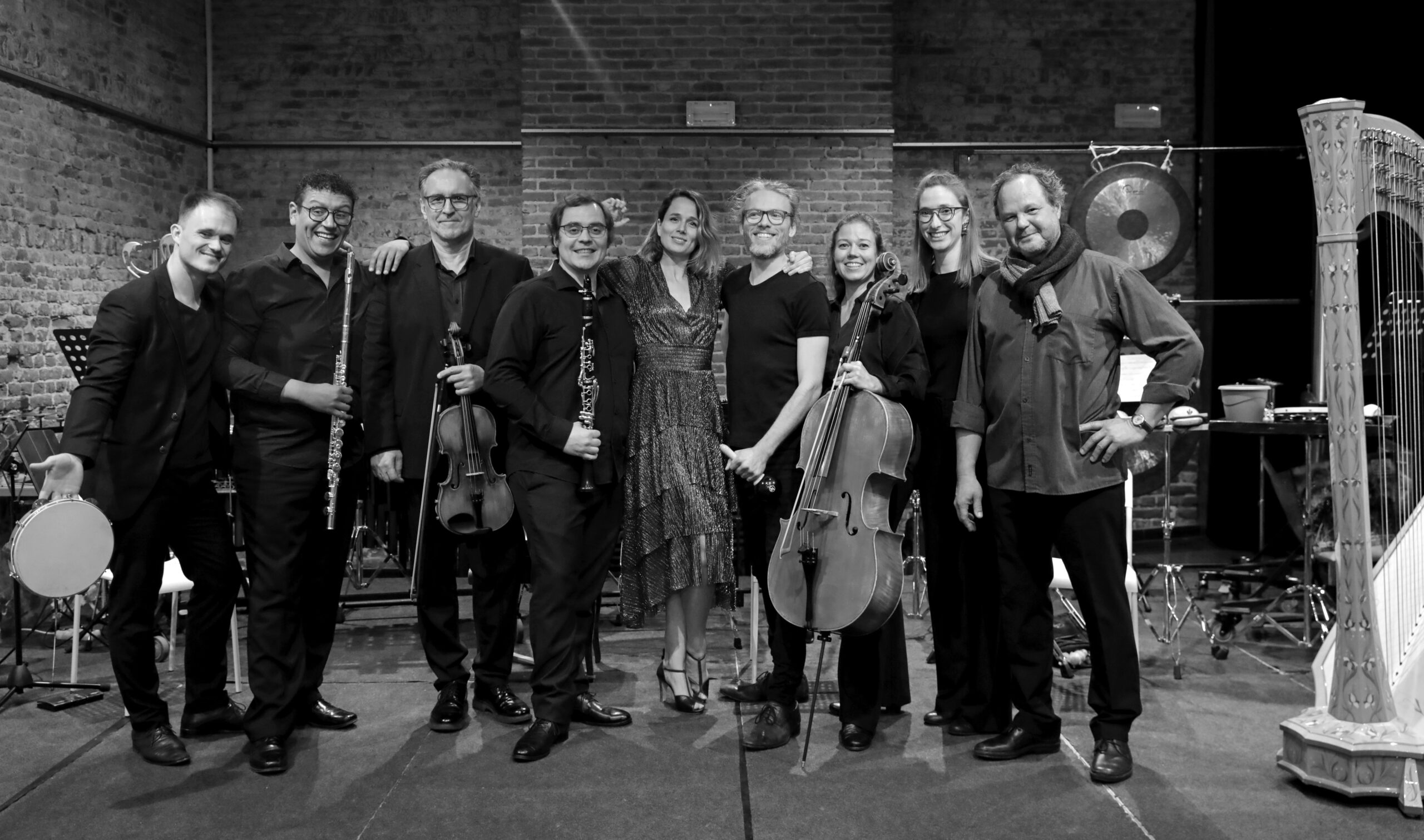
Reservations : bit.ly/BMD-Ensemble21AlbaneCarrere
Trois compositeurs belges se laissent inspirer par les chefs-d’œuvre qui les ont marqués : tel est le fil rouge de ce programme proposé par l’Ensemble21 à l’occasion des Belgian Music Days.
Fafchamps/Schubert, Van Parys/Debussy, Rens/Berio sont les trois couples originaux présentés ici.
Lust auf Sehnsucht (mit Schubert Wandern) pour mezzo-soprano et quatuor à cordes de Jean-Luc Fafchamps (2017) est bien plus qu’un arrangement de quelques lieder de Schubert pour piano, c’est une conversation entre deux compositeurs. Partant de l’œuvre du maître viennois, Fafchamps a imaginé une contagion progressive de sa musique par l’œuvre originale : d’un simple arrangement au début, on glisse vers une œuvre entièrement nouvelle mais qui garde en elle la mélancolie propre à Schubert, le Sehnsucht.
Le Trio pour harpe d’Annelies Van Parys s’inspire du trio emblématique de Debussy, reprenant certains des thèmes de l’œuvre originale déconstruits et réécrits, mais l’auditeur attentif saura en retrouver la trace. Van Parys s’écarte des explorations de Debussy sur les couleurs pour se concentrer sur les propriétés acoustiques et leur impact sur les sens.
Enfin, inspiré par les Folks Songs de Luciano Berio, Jean-Marie Rens en reprend l’instrumentarium et certaines caractéristiques pour ses 11 Folk Songs d’ici et d’ailleurs. Rens navigue entre une présentation simple de la mélodie, qui est alors mise en valeur, et des moments où celle-ci n’est plus qu’une exergue, laissant la place à ce qui l’entoure et la soutient.
—-
Drie Belgische componisten laten zich inspireren door de meesterwerken die hen getekend hebben: dat is de rode draad doorheen dit programma dat Ensemble21 aanbiedt ter gelegenheid van de Belgische Muziekdagen.
Fafchamps/Schubert, Van Parys/Debussy en Rens/Berio zijn de drie originele duo’s die hier worden voorgesteld.
Lust auf Sehnsucht (mit Schubert Wandern) voor mezzosopraan en strijkkwartet van Jean-Luc Fafchamps (2017) is veel meer dan een bewerking van enkele liederen van Schubert voor piano; het is een gesprek tussen twee componisten. Beginnend met het werk van de Weense meester, heeft Fafchamps een geleidelijke besmetting van zijn muziek door het originele werk verbeeld: van een eenvoudig arrangement aan het begin, glijden we naar een geheel nieuw werk dat Schuberts eigen melancholie, de Sehnsucht, behoudt.
Het Harp Trio van Annelies Van Parys is geïnspireerd op het emblematische trio van Debussy, waarbij ze enkele thema’s uit het oorspronkelijke werk neemt, gedeconstrueerd en herschreven, maar de aandachtige luisteraar zal ze kunnen traceren. Van Parys verlaat Debussy’s verkenningen van kleur om zich te concentreren op akoestische eigenschappen en hun impact op de zintuigen.
Tot slot, geïnspireerd door de Volksliederen van Luciano Berio, neemt Jean-Marie Rens het instrumentarium en bepaalde kenmerken ter hand voor zijn 11 Folk Songs d’ici et d’ailleurs. Rens beweegt zich tussen een eenvoudige presentatie van de melodie, die vervolgens wordt benadrukt, en momenten waarop de melodie niet meer is dan een exergue, en ruimte laat voor wat haar omringt en ondersteunt.
—–
Three Belgian composers let themselves be inspired by the masterpieces that have marked them: this is the common thread running through the program proposed by Ensemble21 on the occasion of Belgian Music Days.
Fafchamps/Schubert, Van Parys/Debussy and Rens/Berio are the three original pairs presented here.
Lust auf Sehnsucht (mit Schubert Wandern) for mezzo-soprano and string quartet by Jean-Luc Fafchamps (2017) is much more than an arrangement of a few Schubert lieder for piano, it’s a conversation between two composers. Starting with the Viennese master’s work, Fafchamps has imagined a progressive contagion of his music through the original work: from a simple arrangement at the beginning, we slide towards an entirely new work that retains Schubert’s own melancholy, the Sehnsucht.
Annelies Van Parys’s Harp Trio is inspired by Debussy’s emblematic trio, taking some of the original work’s themes, deconstructed and rewritten, but the attentive listener will be able to trace them. Van Parys departs from Debussy’s exploration of color to focus on acoustic properties and their impact on the senses.
Finally, inspired by Luciano Berio’s Folk Songs, Jean-Marie Rens uses the instrumentarium and certain characteristics for his 11 Folk Songs d’ici et d’ailleurs. Rens navigates between a simple presentation of the melody, which is then highlighted, and moments when it is no more than an exergue, leaving room for what surrounds and supports it.
Program :
Jean-Marie Rens
11 Folk Songs d’ici et d’ailleurs
Pour Voix, Flûte, Clarinette, Harpe, Alto, Violoncelle et Deux Percussionnistes
Jean-Luc Fafchamps
Lust auf Sehnsucht
Pour Voix et Quatuor à Cordes
Annelies Van Parys
Harp Trio
Pour Flûte, Alto et Harpe
20h00 Frank Braley et les solistes de la Chapelle Musicale Reine Elisabeth – BOZAR Hall Henri LeBoeuf
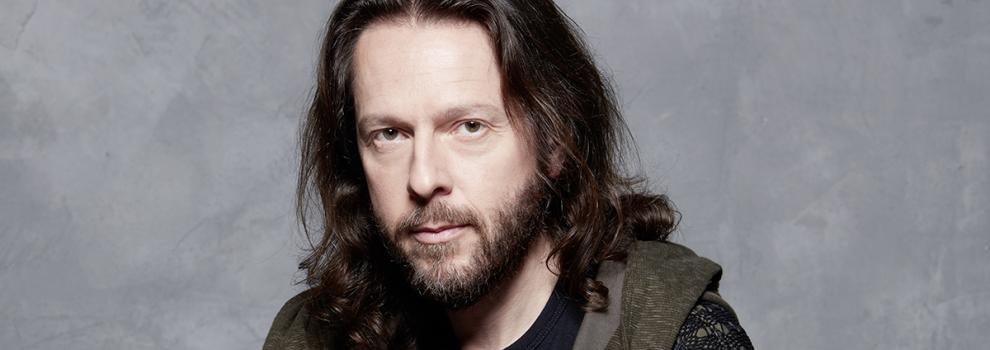
Reservations : bit.ly/BMD-FrankBraleyAndQEMC
C’est un plaisir toujours renouvelé de retrouver Frank Braley, le vainqueur du Concours Reine Élisabeth 1991. Dans le cadre des Belgian Music Days, le pianiste s’entoure d’étoiles montantes. Ensemble, ils abordent deux pièces de musique de chambre de deux grands compositeurs belges du XIXe siècle. Le Quintette pour piano de César Frank est une page sublime construite autour d’un principe compositionnel alliant contrastes dynamiques et expressifs et richesse harmonique. Élève de Franck, Guillaume Lekeu est parti trop tôt, à la veille de son 24e anniversaire. Son Quatuor pour piano, à la fois lyrique et fougueux, n’en dégage pas moins une grande maturité.
—-
Sinds zijn overwinning op de Koningin Elisabethwedstrijd in 1991 is het altijd een blij weerzien met Frank Braley. In het kader van de Belgian Music Days laat hij zich omringen met enkele jonge opkomende sterren voor twee unieke kamermuziekwerken van twee Belgische 19de-eeuwse grootheden. César Franks Pianokwintet is een uitstekend staaltje compositiekunst waarin hij een dynamische en expressieve contrasten koppelt aan een doorgedreven harmonisch spanningsveld. Het werk van zijn leerling Guillaume Lekeu, die veel te vroeg stief, net een dag voor zijn 24ste verjaardag, is misschien minder bekend. Toch ademt zijn Pianokwartet maturiteit waarin hij in een turbulent verhaal ook zeemzoete accenten weet te leggen.
Program :
Guillaume Lekeu
Quatuor à clavier (inachevé), V. 62
César Franck
Quintette avec piano, FWV 7
21h00 FeBeME-BeFEM concert VO1CES – BOZAR Studio 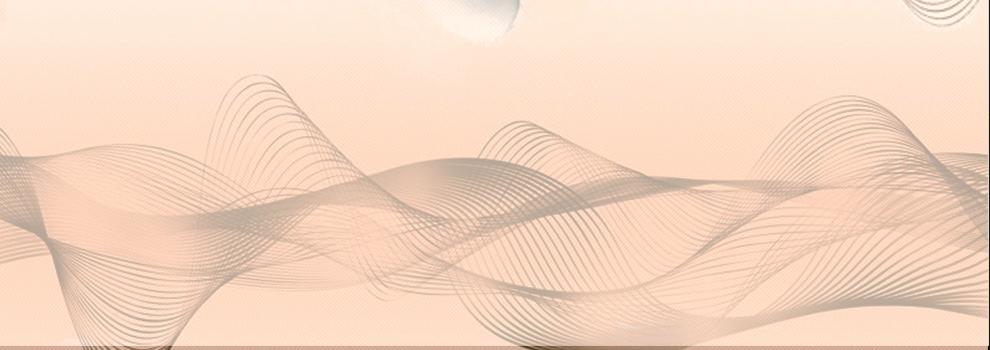
Reservations : bit.ly/BMD-BelgianElectroacousticNight
An electroacoustic adventure around the human voice
Presented by the Belgian Federation for Electroacoustic Music (FeBeME-BeFEM), which since 1994 has represented Belgium internationally in this field of music, notably through its affiliation with ICEM / IMC – UNESCO.
The composers and improvisers spatialise their works themselves, unless otherwise stated.
Tympocaïne 200 (Roald Baudoux, Hugues Peeters)
Vox, sans i, sue +/- 10’
Free electroacoustic improvisation, multiphonic
This improvisation uses voices from the world memory of fixed sounds. Just as the French programme text uses puns to describe this music, this improvisation will also make words and sounds resonate in surprising ways. When by the end you say to yourself, “I hear voices”, you should know that this is quite normal.
Caroline Profanter
Stimmung (2024, world premiere) 10’
Acousmatic music, quadrophonic
The word Stimmung in German means “tuning” and contains the word “voice”. It also refers to a state of temper, mood or spirit. I used different recordings of human and non-human voices, intentionally and unintentionally captured during field recording trips. They are embedded in the environment, tuned to the atmosphere, in a quotidian temporality, part of a dense texture and traverse different states of consciousness and intelligibility: speaking, shouting, singing.
Joris De Laet
Etude aux inattendus (2012) 8’43
Acousmatic music, octophonic
The composition follows a link between the structure of the sounds and their evolution over time. The trajectories of the chosen sound parameters converge and focus towards a precise end result. They can deviate when sound conglomerates disintegrate into a random state. Compound spatialisation is intended to maintain the transparency of the overall sound spectrum.
Todor Todoroff
Voices Part IV – Hallucinations (2024, world premiere) 10’
Acousmatic music, 12-tracks
In the Voices cycle, Voices Part IV – Hallucinations continues the exploration of the voice, its resonances and transformations. Journeys through intuitions and analogies, disruptions of the senses and phantasmagoria with the words of Arthur Rimbaud, nourished by the vocal explorations of François Vaiana, accompanied by digital processing.
INTERMISSION
Dirk Veulemans
Hoe mooi is de toekomst? (2019, revised 2024) 9’30
Pipe organs, video, acousmatic octophonic music
From this project two compositions: In ‘Absolutely Tremendous’, the human voice is rendered acoustically through a self-developed scanning technique by a self-built pipe organ. The voice is thus detached from the person, bringing the drama of the message to the fore. The acousmatic ‘In Paradisum’ is in opposition to the first movement and can be interpreted in various ways.
Charo Calvo
Lalaberinto (2024, world premiere) 10’
Acousmatic music, stereo
A labyrinth made of moments.
Laryssa Kim
InCanto (2024, world premiere) 8’
Acousmatic music, quadrophonic
Spatialisation : Thibault Madeline
In this quadraphonic fantasy, Voce enChante magical formulas, expresses desires, sighs, is bored, expresses wisdom… A ritual, a potion, and then waiting, watching… It’s not always effective, at least not in the way the mind imagines. In the end, however, all’s well that ends well, because “Thy will be done, not mine”.
Leo Kupper
Rezas Populares do Brasil (1998) (movements 1, 3 & 4) 11’57
Acousmatic music, stereo
Spatialisation : Todor Todoroff
Rezas Populares do Brasil is a composition inspired by Brazilian folk traditions and performed by two voices as impressive as they are moving, a mezzo-soprano, Anna Maria Kieffer, and a bass, Eduard Janho-Abumrad. It consists of four movements, from which we hear Meu Anjo, O Ar Vivo and Sabatrana.
15.02
9h15 Study Day : Ysaÿe Rediscovered – KBR
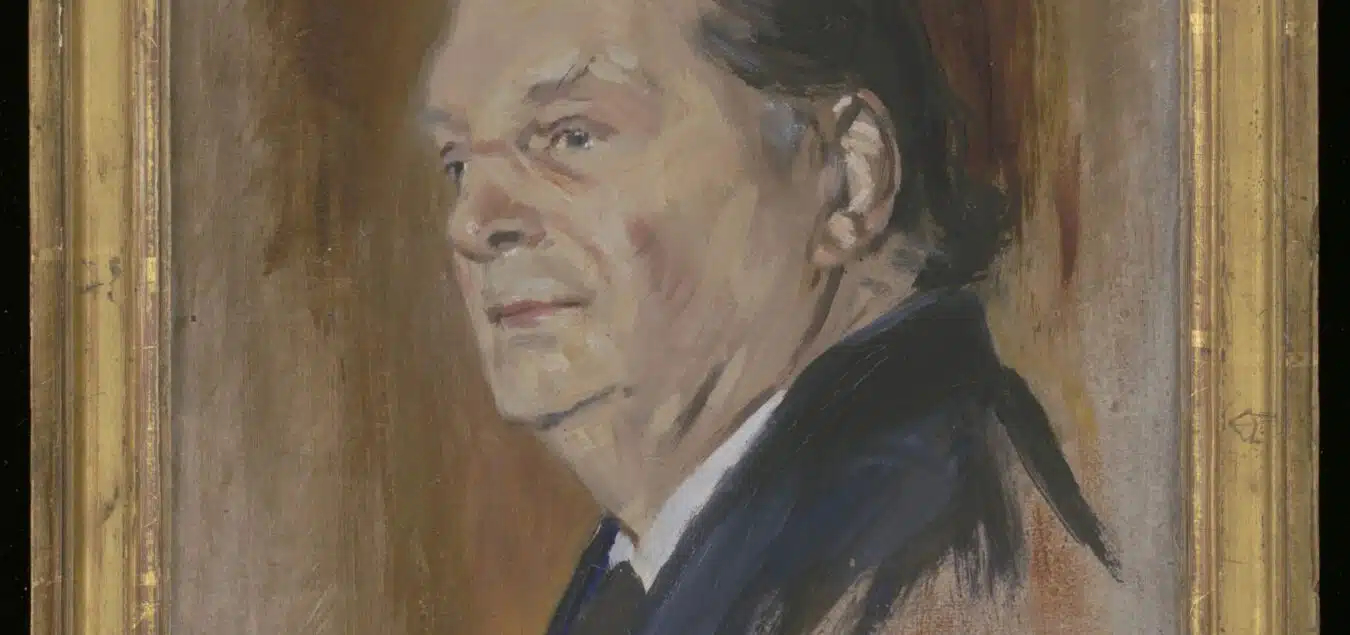
As a prelude to the European premiere of Eugène Ysaÿe’s Ouverture sur des thèmes d’Atala, KBR welcomes and co-organizes the study day Ysaÿe Rediscovered. The Laboratoire de musicologie (LaM) of ULB and the Belgian Society of Musicology, as well as BOZAR, in whose archives the score was found in early 2023, are joining forces with KBR to invite a series of speakers to question the place of this artist in the Belgian and American musical world yesterday and today, to question the legacy left by this atypical composer-performer.
Program
09.00 – Welcome
09.15 – 10.30 – Session 1: Eugène Ysaÿe. From the past to today
Chairs : Marie Cornaz (KBR – Royal Library of Belgium) & Sophie Matkava (BOZAR, Centre for Fine Arts)
- Frédéric Lemmers (KBR – Royal Library of Belgium): Welcome speech
- Henri Vanhulst (Société belge de Musicologie, Académie royale de Belgique): Introduction
- Sophie Matkava (BOZAR) & Marie Cornaz (KBR): Ouverture sur des thèmes d’Atala by Eugène Ysaÿe : the story of a discovery and a collaboration
- Apolline Jesupret: Reflections of a young composer
10.30-11.00: Coffee Break
11.00-12.00 – Session 2: Eugène Ysaÿe’s legacy
Chair : Valérie Dufour (Université Libre de Bruxelles, Fonds National de la Recherche Scientifique)
- Richard Sutcliffe (Musical Instruments Museum, Brussels): Creating a Belgian Violin School
- Jane Gottlieb (The Juilliard School, New York): The legacy of Eugène Ysaÿe at Juilliard
12.00-13.15: Lunch
13.15-14.10: Lecture-concert
Ray Iwazumi (The Juilliard School, New York): Made in the U.S.A.: an evolution of Ysaÿe through the lens of his Extase
With Works played by Ray Iwazumi (violin) & Éliane Reyes (piano):
- Eugène Ysaÿe (1858-1931) – Extase et Rêve d’enfant
- Manuel Quiroga (1892-1961)- La Guajira
14.10-14.30: Coffee Break
14.30-16.00 – Session 3: Eugène Ysaÿe composer-performer
Chair : Henri Vanhulst (Société belge de Musicologie, Académie royale de Belgique)
- Xavier Falques (Arts2, Mons, Université catholique de Louvain): The Poèmes by Eugène Ysaÿe
- Joanna Staruch-Smolec (Université Libre de Bruxelles): Exploring Ysaÿe’s Notion of ‘Surcréateur’ in relation to his Violinistic Gestures
- Henri Vanhulst: Closing remarks
14h00 Conference : Music Publishing – Petite salle/Kleine Zaal,
Conservatoire Royal de Bruxelles

Is there still a future for CDs? Do we want to surf along on the vinyl revival? Embrace streaming or avoid it altogether? And how do we create a fair climate for artists? These and other questions will be addressed during the new music sector meeting at the Belgian Music Days.
Program
13:45 Doors open
14:00 Welcome
14:10 Facts & figures (Kunstenpunt (Flanders Arts Institute))
14:30 Keynote Esther Gottschalk (ECSA) on fair practice in publishing music
15:00 Coffee break (with information market)
15:30 Book Presentation ‘The Guidebook to Self-Releasing Your Music’ by Matthew Whiteside
16:15 Coffee break (with information market)
16:45 Panel discussion: publishing music on cd, vinyl and through streaming
From idea to concept, from recording to release on CD, LP or an online platform. How do you proceed once you’ve planted the seed to release your music? These will be the themes we’ll discuss with our panelists who are members of an ensemble, composers or artists. We’ll search for good practices, try to identify pitfalls, and to find the key to successful partnerships. Or should you become your own publisher?
17:30 End of the programme
Attending the sector meeting is free of charge, but registration is required using this link.
This sector meeting is an initiative of ISCM-Flanders in cooperation with Flanders Arts Institute and Forum de la Création Musicale(ISCM-Wallonia).
18h30 ICTUS ensemble – BOZAR Hall M
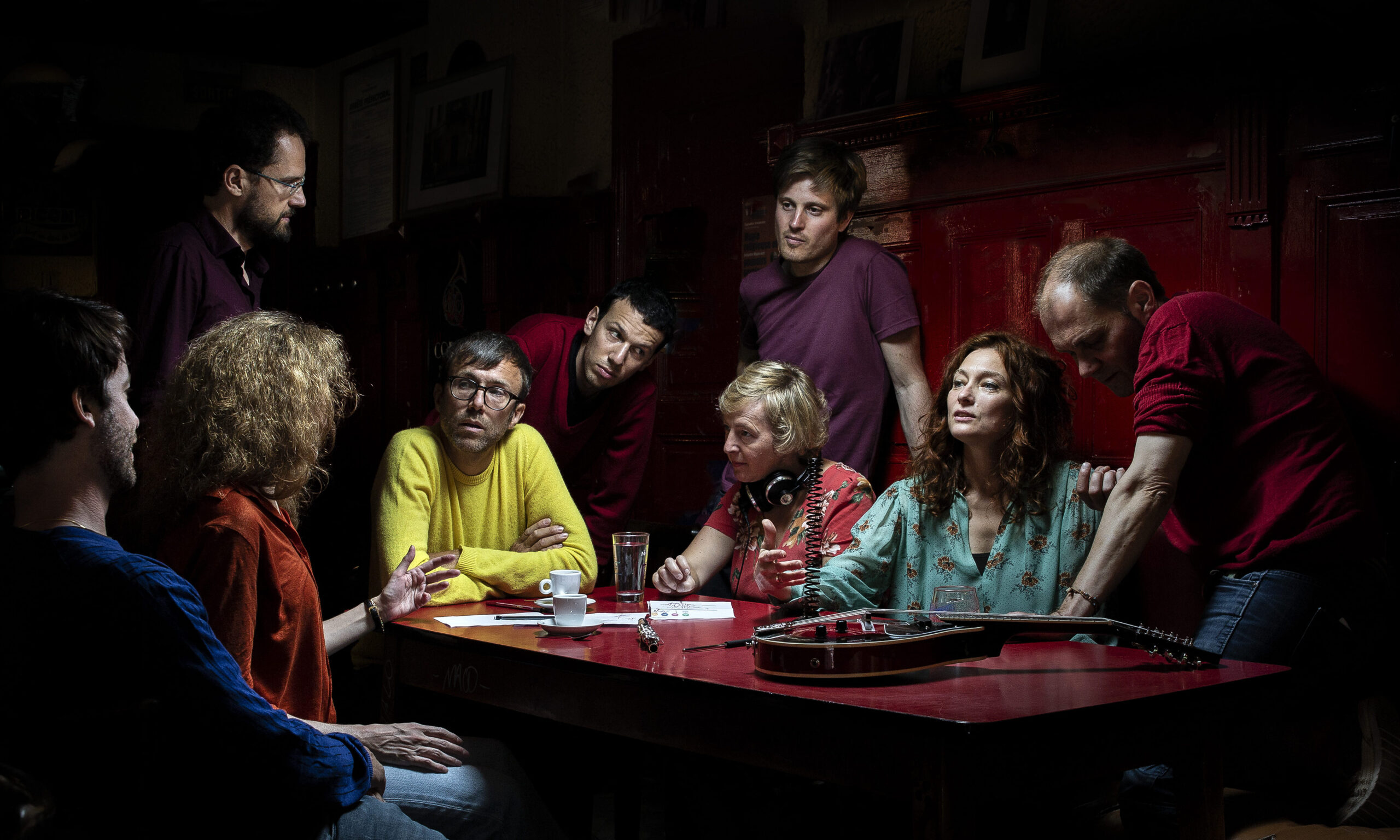
Reservations : bit.ly/BMD-Ictus
MAYA VERLAAK connaît comme personne l’art de doser l’éthique expérimentale, la fibre joueuse, la sensibilité instrumentale. Dans « Roulette », un ordinateur écoute et ré-oriente “en temps réel” un duo pour piano et guitare électrique, d’une grande beauté harmonique.
JINWOOK JUNG met en musique des poèmes de Yi Sang, poète majeur et trop méconnu des années 30 coréennes. Le surréalisme noir de Yi Sang vibre à chaque mot de l’angoisse accablante de l’époque coloniale. Atmosphères feutrées, glissantes, à bout de souffle. L’écriture de Jung est d’un exceptionnel raffinement (son alliance de la viole de gambe et de la guitare électrique, par exemple).
Patient artisan de la musique d’écriture, PIERRE SLINCKX s’est pourtant emparé de nombreux traits de la pratique electro : aller à l’os ; penser la répétition et la longue distance ; ne pas craindre le moment sublime (le killing sound). Le résultat est généralement irrésistible. Pour les Belgian Music Days, nous créerons notre première collaboration avec Slinckx : i#1 (i comme ictus).
—-
MAYA VERLAAK subtly and artfully combines experimental ethics, playfulness and instrumental sensibility. In “Roulette”, a computer listens and then redirects “in real-time” a duo for piano and electric guitar, conveying great harmonic beauty.
JINWOOK JUNG puts to music the poems of Yi Sang, a significant yet little-known poet from 1930s Korea. Sang’s poems resonate with dark surrealism; each word conjures the oppressive and troubled colonial era. The atmosphere is intimate, shifting, breathless. The exquisite refinement of Jung’s compositions is evident, for example, in his blend of viola da gamba and electric guitar.
Although a craftsman of written music, PIERRE SLINCKX has nevertheless adopted numerous traits from electronic practices: getting down to the core, pondering repetition and length, not being afraid of the sublime moment (the killing sound). The result is generally irresistible. For Belgian Music Days, we will create our first collaboration with Slinckx: i#1 (i as in ictus).
—-
MAYA VERLAAK kent als geen ander de kunst van het balanceren tussen experimentele ethiek, speelsheid en instrumentale gevoeligheid. In Roulette heroriënteert een computer in real time een duet voor piano en elektrische gitaar naar een bijzondere harmonische schoonheid.
JINWOOK JUNG zet gedichten op muziek van Yi Sang, een belangrijke en te weinig gekende dichter uit het Korea van de jaren 1930. Het donkere surrealisme van Yi Sang laat elk woord vibreren op een overweldigende angst uit het koloniale tijdperk. De sfeer is verstild, glibberig, buiten adem. Jungs schriftuur is uitzonderlijk verfijnd (zoals zijn combinatie van viola da gamba en elektrische gitaar).
Hoewel PIERRE SLINCKX een man is van de schriftuur leunt zijn praktijk dicht aan bij die van de elektronische popmuziek. Tot op het bot gaan, herhaling, de lange duur, het sublieme moment niet uit de weg gaan (de killing sound). Het resultaat daarvan is behoorlijk onweerstaanbaar. De Belgian Music Days programmeren een eerste samenwerking met Slinckx: i#1 (i als in ictus).
Program :
Jinwook Jung
Plan à vol de corbeau, poème n°1
Trio for voice, e-guitar and gamba
Julia Emmery
Hoquetus
for electric guitar & percussion
(commissioned by Ictus & Opéra de Lille)
Maya Verlaak
Roulette
for electric guitar, piano and electronics
Maya Verlaak
Anticipation
Jinwook Jung
(world premiere)
Plan à vol de corbeau, poème n°15
for voice, e-guitar, gamba, keyboard and double bass
(commissioned by Ictus & Royaumont foundation)
Pierre Slinckx
i#1
for percussion and electronics
20h00 Belgian National Orchestra & van Steen – BOZAR Hall Henri LeBoeuf
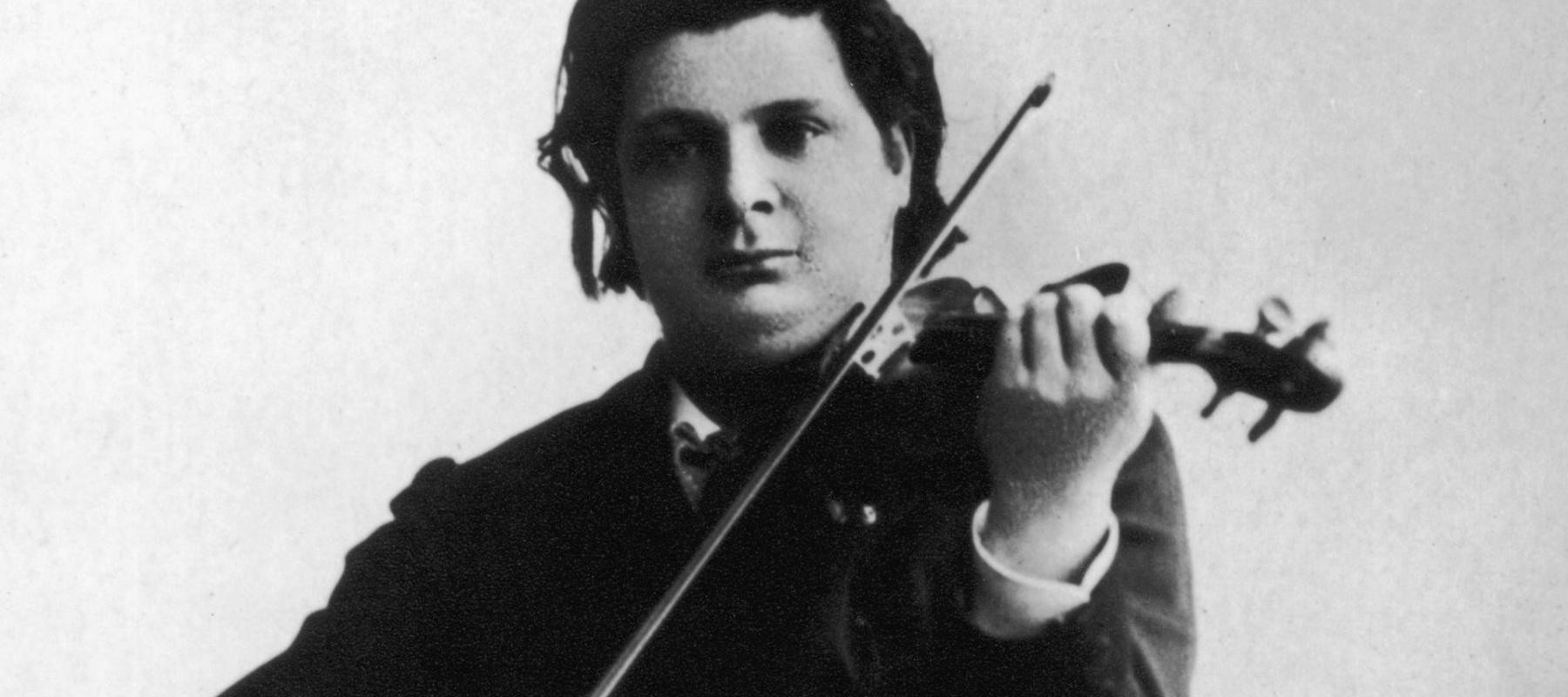
Reservations : bit.ly/BMD-BNOAndVanSteen
Jesupret, Henderickx & Ysaÿe: créations
Bozar présente un concert exceptionnel du Belgian National Orchestra, avec trois créations de compositeurs belges: Apolline Jesupret, Wim Henderickx et Eugène Ysaÿe. L’œuvre d’Ysaÿe est particulière car sa partition – autographe – a été retrouvée début 2023 dans les archives de Bozar dans le cadre d’un partenariat avec la Bibliothèque royale de Belgique (KBR). Eugène Ysaÿe compose son Ouverture sur des thèmes d’Atala en 1919 en hommage à son défunt frère Théo, pianiste et compositeur, s’inspirant d’une cantate que ce dernier lui a dédiée en 1892. L’œuvre n’a été jouée qu’une seule fois en 1920 à Cincinnati, sous la direction du compositeur. Au-delà de la création d’une œuvre oubliée, ce concert met en dialogue des compositeurs belges dont le travail constitue un patrimoine artistique exceptionnel. En partenariat avec Bozar, KBR organise, avant le concert, une journée d’étude dédiée aux frères Ysaÿe.
Belgian National Orchestra
Jac van Steen – direction
Jan Michiels – piano
Chœur de l’Institut supérieur de musique et de pédagogie – Namur
Jesupret, Henderickx & Ysaÿe: premières
In het kader van de Belgian Music Days presenteert Bozar een uitzonderlijk concert met het Belgian National Orchestra: maar liefst drie nieuwe werken van de Belgische componisten Apolline Jesupret, Wim Henderickx en Eugène Ysaÿe zullen in première gaan. De autograaf van Ysaÿe werd pas begin 2023 ontdekt in de archieven Bozar in het kader van een samenwerking met de Koninklijke Bibliotheek van België (KBR). Eugène Ysaÿe componeerde zijn Ouverture sur des thèmes d’Atala in 1919 als een eerbetoon aan zijn overleden broer Théo, een pianist en componist, geïnspireerd door een cantate die laatstgenoemde in 1892 aan hem had opgedragen. Het werk werd slechts één keer uitgevoerd, in Cincinnati in 1920, onder leiding van de componist. Naast de première van een vergeten werk, brengt dit concert Belgische componisten samen wiens werk een uitzonderlijk artistiek erfgoed vormt. In samenwerking met Bozar organiseert KBR een studiedag gewijd aan de gebroeders Ysaÿe voorafgaand aan het concert.
Belgian National Orchestra
Jac van Steen – leiding
Jan Michiels – piano
Koor van Institut supérieur de musique et de pédagogie – Namen
Programme:
Wim Henderickx
La Visioni di Paura
Apolline Jesupret
Bleue
pour orchestre (2024, world premiere, commande Ars Musica)
Eugène Ysaÿe
Ouverture sur des thèmes d’Atala
pour orchestre et chœur (première européenne)
Jacqueline Fontyn
Rivages Solitaires
Concerto pour piano et orchestre (soliste Jan Michiels)
Kris Defoort
Human Voices Only
pour orchestre
16.02
16h30 Fuga Trophy UCB-UBC – Conservatoire Petite Salle/Kleine Zaal
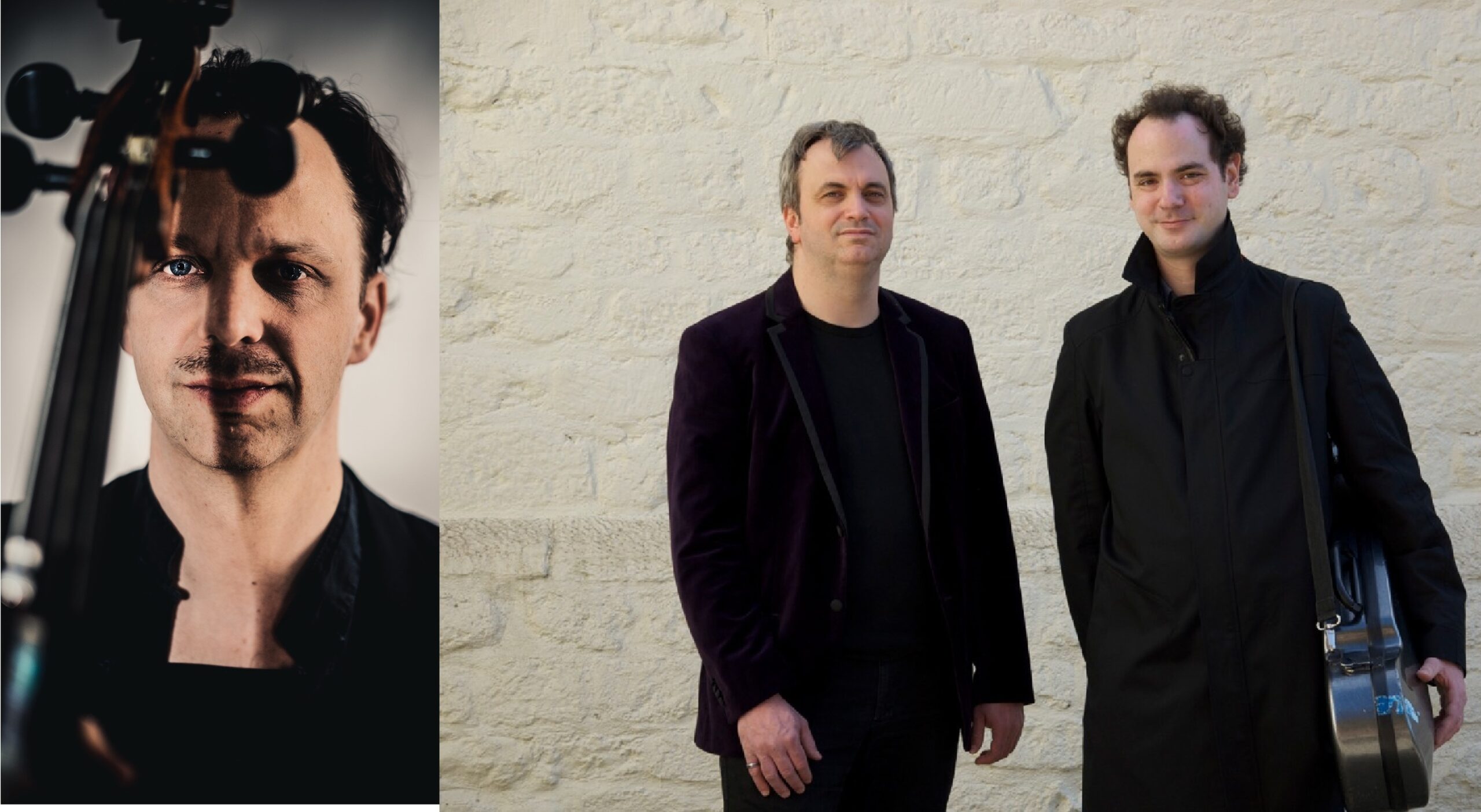
Réservations par email : dan.baas@skynet.be
Trophée Fuga – l’Union des Compositeurs Belges
Francophone :
Duo Gemini; Jean-Frédéric Molard, violon et Jean-Noël Remiche, piano
Programme:
Mariano Ferrández
Prélude
Weily Luc
Moments mélancoliques d’une nuit pluvieuse
Danielle Baas
Osmose
Johan Sluys
Sakura 2
Wilfried Westerlinck
Sicilienne
Michel Defourny
Rondo équivoque
Renier Doutrelepont
Pièces pour violon et piano
Fuga Trofee – Unie van Belgische Componisten
Vlaams :
Benjamin Glorieux, cellist
Chant, violoncelle et électronique.
20h00 Musique Royale des Guides/Koninklijke Muziekkapel van de Gidsen – Conservatoire Grande Salle/Grote Zaal
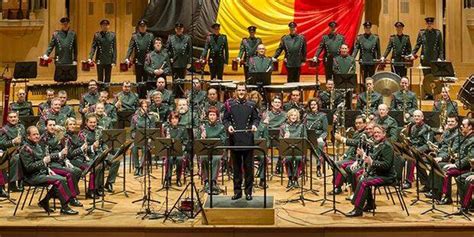
Réservations : https://www.kcb.be/en/calendar/koninklijke-muziekkapel-van-de-gidsen-musique-royale-des-guides
- Leopoldo primo – Jacqueline Fontyn
- Requisitoire pour cuivres et percussion – Frederik Van Rossum
- Rhapsody for Saxophone and symphonic wind band – André Waignein
Solist: Vadim Tkachuk (saxophone alto) (MAS 2 student KCB klas S. Diricq)
- Moderato
- Calmato
- Allegro Presto
Pauze/Pause
- Rites – Jean Absil
- Pour saluer l’aurore
- Pour conjurer les esprits
- Pour fêter le soleil
- Symphony nr. 7 – Vic Legley
- Movement 1
- Movement 2
- Movement 3
- Movement 4
- Mars van het 1e Regiment Gidsen – Jean-Valentin Bender

